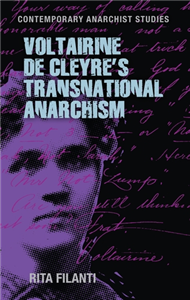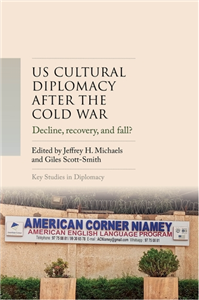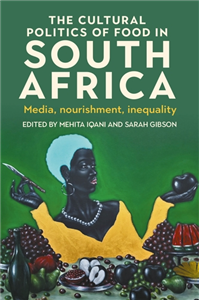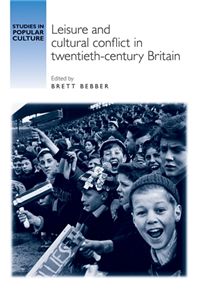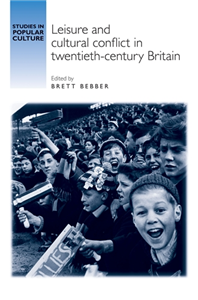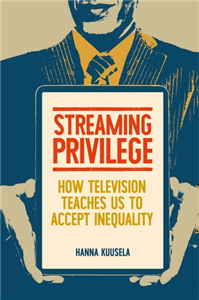Your Search Results
-
Promoted ContentThe ArtsJune 2025
Toronto New Wave cinema and the anarchist-apocalypse
by David Christopher
The Toronto New Wave (TNW) comprises a group of avant-garde filmmakers working in Canada from the 1980s and into the new millennium whose innovative film works share significant affinities with anarchist themes and aesthetics. Several of the TNW filmmakers openly identify as anarchists and/or acknowledge a debt to anarchism in their production of highly apocalyptic narratives as part of their cinematic political projects. However, recognition of anarchism's progressive apocalyptic theoretical relevance has yet to be substantially taken up by scholarship in cinema analysis. This analysis introduces an anarchist-inflected analytical methodology to understand the apocalyptic-revelatory political work these films attempt to accomplish in the perceptual space between the filmic texts and both their auteurs and potential viewers, and to re-locate the TNW within cinema history as an ongoing phenomenon with new significance in an apocalyptic era of digital distribution.
-
Promoted ContentHumanities & Social SciencesApril 2020
Anarchism, 1914–18
Internationalism, anti-militarism and war
by Ruth Kinna, Matthew S. Adams
Anarchism 1914-18 is the first systematic analysis of anarchist responses to the First World War. It examines the interventionist debate between Peter Kropotkin and Errico Malatesta which split the anarchist movement in 1914 and provides a historical and conceptual analysis of debates conducted in European and American movements about class, nationalism, internationalism, militarism, pacifism and cultural resistance. Contributions discuss the justness of war, non-violence and pacifism, anti-colonialism, pro-feminist perspectives on war and the potency of myths about the war and revolution for the reframing of radical politics in the 1920s and beyond. Divisions about the war and the experience of being caught on the wrong side of the Bolshevik Revolution encouraged anarchists to reaffirm their deeply-held rejection of vanguard socialism and develop new strategies that drew on a plethora of anti-war activities.
-
 Trusted Partner
Humanities & Social SciencesMay 2026
Trusted Partner
Humanities & Social SciencesMay 2026Voltairine de Cleyre’s transnational anarchism
by Rita Filanti
Despite a growing interest in her life and work, Voltairine de Cleyre's contribution to anarchist studies, women studies, and American literature is still mostly unacknowledged. Described by Emma Goldman as 'the most gifted and brilliant anarchist woman America ever produced', de Cleyre authored poems, prose sketches, lectures and translations which radiate with her vision of the world, meticulous use of language, and iconoclastic vigor. Drawing on her copious correspondence with family members, friends and comrades, this monograph provides novel insight into the most significant events of her life while investigating the aesthetic concern characterizing all of her writing. Constantly shifting across languages, she established cosmopolitan networks within immigrant communities at home and beyond the ocean, always believing, until her untimely death, in universal solidarity and the ultimate non-existence of national, ethnic and linguistic barriers.
-
 Trusted Partner
Humanities & Social SciencesMarch 2026
Trusted Partner
Humanities & Social SciencesMarch 2026US cultural diplomacy after the Cold War
Decline, recovery, and fall
by Jeffrey H. Michaels, Giles Scott-Smith
In the decades following the USSR's collapse, the US has gone from unrivalled hegemon to a position of relative decline. With America 'triumphant' after 1991, its culture, like its diplomatic, military and economic power, remained unmatched. Such favourable circumstances seemed to undercut the need for cultural diplomacy. Why should the US government sell a product that was already selling so well? After 9/11, however, it was apparent the US image was less popular than previously assumed. To reverse this negative image, cultural diplomacy was revived. Despite being beset by internal and external challenges, US officials supported various cultural initiatives and partnerships to promote the American brand globally. Along the way, cultural diplomacy has made use of new forms of expression to promote American culture and build positive foreign relations. The arrival of the second Trump administration in 2025 has clearly signalled an end to using cultural diplomacy to further causes of empowerment and diversity, making the future uncertain for this field of activity.
-
 Trusted Partner
Humanities & Social SciencesMarch 2026
Trusted Partner
Humanities & Social SciencesMarch 2026The cultural politics of food in South Africa
Media, nourishment, inequality
by Mehita Iqani, Sarah Gibson
Food is both a material system of nourishment, necessary for human survival, and a communicative system that signifies multiple meanings across human cultures. This book explores the cultural politics of food in the South African context, bringing together a range of disciplinary perspectives on the links between media, nourishment, and inequality. The chapters all highlight the multiplicity of meanings that food has in South African society. These include historical perspectives on the impact of colonialism, migration and apartheid had on food and foodways in South Africa; sociological interventions on food and society; aesthetic practices in relation to food; and mediated food cultures in South Africa. Taken together, the book critically explores the multiple ways in which food is never just food, and always linked to complex and shifting modalities of meaning and knowledge in the South African context.
-
 Trusted Partner
Humanities & Social SciencesDecember 2024
Trusted Partner
Humanities & Social SciencesDecember 2024British culture after empire
Race, decolonisation and migration since 1945
by Josh Doble, Liam Liburd, Emma Parker
British culture after Empire is the first collection of its kind to explore the intertwined social, cultural and political aftermath of empire in Britain from 1945 up to and beyond the Brexit referendum of 2016, combining approaches from the fields of history, English and cultural studies. Against those who would deny, downplay or attempt to forget Britain's imperial legacy, the various contributions expose and explore how the British Empire and the consequences of its end continue to shape Britain at the local, national and international level. As an important and urgent intervention in a field of increasing relevance within and beyond the academy, the book offers fresh perspectives on the colonial hangovers in post-colonial Britain from up-and-coming as well as established scholars.
-
 Trusted Partner
Humanities & Social SciencesSeptember 2025
Trusted Partner
Humanities & Social SciencesSeptember 2025Industrial memory in North East England
Negotiating northernness
by Victoria Allen
Industrial memory in North East England examines how the region's industrial myth and memory have been articulated in the renegotiation of northernness. The book offers a critical contextualisation of the concept of northernness and the English North, and an introduction to the concept of the PopCultural Portfolio, a mixed-methods approach to conjunctural analysis in cultural and memory studies. The book provides six richly illustrated case studies to demonstrate the practical application of cultural studies' expansive and inclusive understanding of texts, bringing together materials from North East football, folk, indie and exhibition culture to establish how the North East's industrial past continues to be remembered and functionalised as industrial memory. In turn, the conjunctural analysis demonstrates how industrial memory is articulated and mythologised as north(east)ernes in contemporary popular culture.
-
 Trusted Partner
September 1979
Trusted Partner
September 1979Spectaculum 31
Fünf moderne Theaterstücke
by Herbert Achternbusch, Dario Fo, Barrie Keeffe, Bodo Kirchhoff, Heiner Müller, Wolfgang Storch
Herbert Achternbusch: EllaDie Lebensgeschichte einer Frau namens Ella als Geschichte einer Gefangenschaft - in der Familie, im Gefängnis, in der psychiatrischen Klinik. Die Geschichte von der systematischen Vernichtung eines Menschen durch die Gesellschaft.Dario Fo: Zufälliger Tod eines AnarchistenIn Mailand war 1969 der Anarchist Pino Pinelli aus einem Fenster im 4. Stock des Mailänder Polizeipräsidiums ›gestürzt‹. Die behördenoffizielle Version der Todesursache lautete auf Selbstmord. Eine Untersuchung der tatsächlichen Vorgänge kam erst nach der Uraufführung von Fos Stück im Jahre 1970 in Gang, einer volkstümlichen Groteske, die sich der gesammelten Widersprüche der polizeiamtlichen Erklärungen bediente, um die allgemeinen Zweifel an der Selbstmordversion zu artikulieren.Barrie Keeffe: Gimme shelterEine Trilogie über die Zwänge zur Anpassung junger Leute an Verhältnisse, die nicht die ihren sind, mit denen sie nicht fertig werden können. Junge Verwaltungsangestellte versuchen vergeblich, sich den Konkurrenzspannungen und kümmerlichen Berufsperspektiven zu entziehen. - Ein Schüler droht, Lehrer, Lehrerin und Direktor in die Luft zu sprengen, weil sie ihn durch ein mieses Zeugnis zum Versager ohne Berufsaussichten gestempelt haben. - Jungmanager versuchen, mit revolutionärem Geschwätz einen jungen Gärtner zum Widerstand gegen das System zu ermuntern, dem sie sich selbst total ergeben haben.Bodo Kirchhoff: Das Kind oder Die Vernichtung von NeuseelandDas Eigenheim als geschlossene Anstalt. Ein zurückgebliebenes Kind, das nur einen Ausweg hat: sich im Garten ein Loch zu graben, durch die Erde, bis nach Neuseeland. Eine Mutter, die ihren Sohn systematisch von allem fernhält. Ein Vater, der an die Begabung seines Sohnes glaubt und einen Therapeuten engagiert, der aus dem Fluchtloch eine Baustelle machen soll, um dem Tun des Kindes einen Sinn zu geben.Heiner Müller: Germania Tod in Berlin2000 Jahre deutsche Geschichte. Die Tradition von Spaltung und Demütigung, von Opportunismus und besinnungsloser Selbstzerstörung. Eine groteske Revue der deutschen Misere, ein Angriff auf die deutschen Werte und Mythologien, ein wüstes Panorama deutscher Übermenschen und Untertanen. Auch ein Stück über die deutsche Arbeiterbewegung und ihre Niederlagen.
-
 Trusted Partner
Humanities & Social SciencesNovember 2016
Trusted Partner
Humanities & Social SciencesNovember 2016Anarchy in Athens
An ethnography of militancy, emotions and violence
by Nicholas Apoifis, Uri Gordon
The battles between Athenian anarchists and the Greek state have received a high degree of media attention recently. But away from the intensity of street protests militants implement anarchist practices whose outcomes are far less visible. They feed the hungry and poor, protect migrants from fascist beatings and try to carve out an autonomous political, social and cultural space. Activists within the movement share politics centred on hostility to the capitalist state and all forms of domination, hierarchy and discrimination. Based on extensive ethnographic fieldwork among Athenian anarchists and anti-authoritarians, Anarchy in Athens unravels the internal complexities within this milieu and provides a better understanding of the forces that give the space its shape.
-
 Trusted Partner
Humanities & Social SciencesMarch 2016
Trusted Partner
Humanities & Social SciencesMarch 2016Leisure and cultural conflict in twentieth-century Britain
by Jeffrey Richards, Brett Bebber, Allison Abra, Brad Beaven, Brett Bebber, Kelly Boyd
This collection of essays addresses research trends in the history of British leisure while also presenting a wide range of articles on cultural conflict and leisure in the twentieth century. It includes innovative research on a number of topics, including television, cinema, the circus, women's leisure, dance, football and drug culture. It provides an excellent entry to leisure studies and history, while addressing the contributions of other disciplines and exploring key historiographical trends. Three broad topics structure the collection; cultural contestation and social conflict in leisure; regulation and standardisation; and national identity embodied in leisure and popular culture. The book will be useful to students and educators of twentieth-century and British history, as it offers accessible and topical studies that pique historical curiosity. In addition, historians, sociologists and cultural analysts of the twentieth century will find it essential for understanding pleasure and recreation in twentieth-century British society. ;
-
 Trusted Partner
Social & cultural historyJuly 2012
Trusted Partner
Social & cultural historyJuly 2012Leisure and cultural conflict in twentieth-century Britain
by Allison Abra, Brad Beaven, Brett Bebber, Kelly Boyd
This collection of essays addresses research trends in the history of British leisure while also presenting a wide range of articles on cultural conflict and leisure in the twentieth century. It includes innovative research on a number of topics, including television, cinema, the circus, women's leisure, dance, football and drug culture. It provides an excellent entry to leisure studies and history, while addressing the contributions of other disciplines and exploring key historiographical trends. Three broad topics structure the collection; cultural contestation and social conflict in leisure; regulation and standardisation; and national identity embodied in leisure and popular culture. The book will be useful to students and educators of twentieth-century and British history, as it offers accessible and topical studies that pique historical curiosity. In addition, historians, sociologists and cultural analysts of the twentieth century will find it essential for understanding pleasure and recreation in twentieth-century British society.
-
 Trusted Partner
Humanities & Social SciencesJuly 2026
Trusted Partner
Humanities & Social SciencesJuly 2026Streaming privilege
How television teaches us to accept inequality
by Hanna Kuusela
Streaming Privilege examines how today's serial television plays a powerful role in legitimating the 'new Gilded Age' of extreme inequality. Through a sharp cultural analysis, the book reveals popular culture's obsession with wealth and dynastic families - and how it helps to sustain economic divides. Focusing on four major series - Downton Abbey, The Crown, Succession and Yellowstone - the book explores what today's most-watched television dramas reveal about contemporary attitudes toward wealth. At the heart of the book is a concern with the intersection of family, wealth and morality. As dynastic structures once again dominate economy, stories of wealthy families offer a cultural lens through which audiences make sense of economic disparities. The book shows how television does not merely reflect inequality but actively shapes our understandings of it. Streaming Privilege is essential reading for scholars and students in media studies, cultural studies and economic sociology - as well as for general readers interested in how popular culture influences our perceptions of inequality.
-
 Trusted Partner
Humanities & Social SciencesJuly 2018
Trusted Partner
Humanities & Social SciencesJuly 2018Changing anarchism
Anarchist theory and practice in a global age
by Jonathan Purkis, James Bowen
The massive protests against globalisation in recent years have re-awoken interest in anarchism. Changing anarchism sets out to reposition anarchist theory and practice by documenting contemporary anarchist practice and providing a viable analytical framework for understanding it. The contributions here, from both academics and activists, raise challenging and sometimes provocative questions about the complex nature of power and resistance to it. The areas covered include: sexuality and identity; psychological dependency on technology; libertarian education; religion and spirituality; protest tactics; mental health and artistic expression; and the ongoing 'metaphorical wars' against drugs and terror. This collection epitomises the rich diversity that exists within contemporary anarchism as well as demonstrating its ongoing relevance as a sociological tool.
-
 Trusted Partner
AnarchismJune 2012
Trusted Partner
AnarchismJune 2012Changing anarchism
Anarchist theory and practice in a global age
by Edited by Jonathan Purkis and James Bowen
The massive protests against globalisation in recent years have re-awoken interest in anarchism. Changing anarchism, finally available in paperback, sets out to reposition anarchist theory and practice by documenting contemporary anarchist practice and providing a viable analytical framework for understanding it. The contributions here, from both academics and activists, raise challenging and sometimes provocative questions about the complex nature of power and resistance to it. The areas covered include: sexuality and identity; psychological dependency on technology; libertarian education; religion and spirituality; protest tactics; mental health and artistic expression; and the ongoing 'metaphorical wars' against drugs and terror. This collection epitomises the rich diversity that exists within contemporary anarchism as well as demonstrating its ongoing relevance as a sociological tool.
-
 Trusted Partner
Lifestyle, Sport & LeisureAugust 2016
Trusted Partner
Lifestyle, Sport & LeisureAugust 2016Culture in Manchester
Institutions and urban change since 1850
by Janet Wolff, Mike Savage
This book brings together studies of cultural institutions in Manchester from 1850 to the present day, giving an unprecedented account of the city's cultural evolution. These bring to light the remarkable range of Manchester's contribution to modern cultural life, including the role of art education, popular theatre, religion, pleasure gardens, clubs and societies. The chapters show the resilience and creativity of Manchester's cultural institutions since 1850, challenging any simple narrative of urban decline following the erosion of Lancashire's industrial base, at the same time illustrating the range of activities across the social classes. This book will appeal to everyone interested in the cultural life of the city of Manchester, including cultural historians, sociologists and urban geographers, as well as general readers with interests in the city. It is written by leading international authorities, including Viv Gardner, Stephen Milner, Mike Savage, Bill Williams and Janet Wolff.
-
 Trusted Partner
Humanities & Social SciencesSeptember 2016
Trusted Partner
Humanities & Social SciencesSeptember 2016Lifelong learning, the arts and community cultural engagement in the contemporary university
by Michael Osborne, Darlene Clover, Kathy Sanford
-
 Trusted Partner
Clinical psychology
Trusted Partner
Clinical psychologyCultural and Ethnic Diversity
How European Psychologists Can Meet the Challenges
by Alexander Thomas
Culture and diversity are both challenge and opportunity. This volume looks at what psychologists are and can be doing to help society meet the challenges and grasp the opportunities in education, at work, and in clinical practice. The increasingly international and globalized nature of modern societies means that psychologists in particular face new challenges and have new opportunities in all areas of practice and research. The contributions from leading European experts cover relevant intercultural issues and topics in areas as diverse as personality, education and training, work and organizational psychology, clinical and counselling psychology, migration and international youth exchanges. As well as looking at the new challenges and opportunities that psychologists face in dealing with people from increasingly varied cultural backgrounds, perhaps more importantly they also explain and discuss how psychologists can deepen and acquire the intercultural competencies that are now needed in our professional lives. Target Group: psychotherapists / clinical psychologists / mental health professionals
-
 Trusted Partner
Humanities & Social SciencesJune 2026
Trusted Partner
Humanities & Social SciencesJune 2026From Iceland to the Americas
Vinland and historical imagination
by Tim William Machan, Jón Karl Helgason
This volume investigates the reception of a small historical fact with wide-ranging social, cultural and imaginative consequences. Inspired by Leif Eiriksson's visit to Vinland in about the year 1000, novels, poetry, history, politics, arts and crafts, comics, films and video games have all come to reflect rising interest in the medieval Norse and their North American presence. Uniquely in reception studies, From Iceland to the Americas approaches this dynamic between Nordic history and its reception by bringing together international authorities on mythology, language, film and cultural studies, as well as on the literature that has dominated critical reception. Collectively, the chapters not only explore the connections among medieval Iceland and the modern Americas, but also probe why medieval contact has become a modern cultural touchstone.
-
 Trusted Partner
Literature & Literary StudiesJune 2001
Trusted Partner
Literature & Literary StudiesJune 2001Bakhtin and cultural theory
Second edition
by Ken Hirschkop, David Shepherd
An important collection of essays which treats Bakhtin as a provocative theorist whose work must be tested, explored and compared with the work of others. Contributors assess Bakhtin's contribution to difficult issues of colonialism, feminism, reception theory and theories of the body, amongst others. New articles explore the origins, previously unacknowledged, of Bakhtin's theory of language and provide a vivid account of the dramatic scandal surrounding Bakhtin's thesis on Rabelais. Contains dramatic new material, drawn from post-perestroika sources, which demythologizes the image of this important writer. A new bibliographical essay and introduction bring the English-language reader up-to-date with the progress of Bakhtin studies in Russia. ;
-
 Trusted Partner
Humanities & Social SciencesNovember 2024
Trusted Partner
Humanities & Social SciencesNovember 2024Culture is bad for you
by Orian Brook, Dave O'Brien, Mark Taylor






